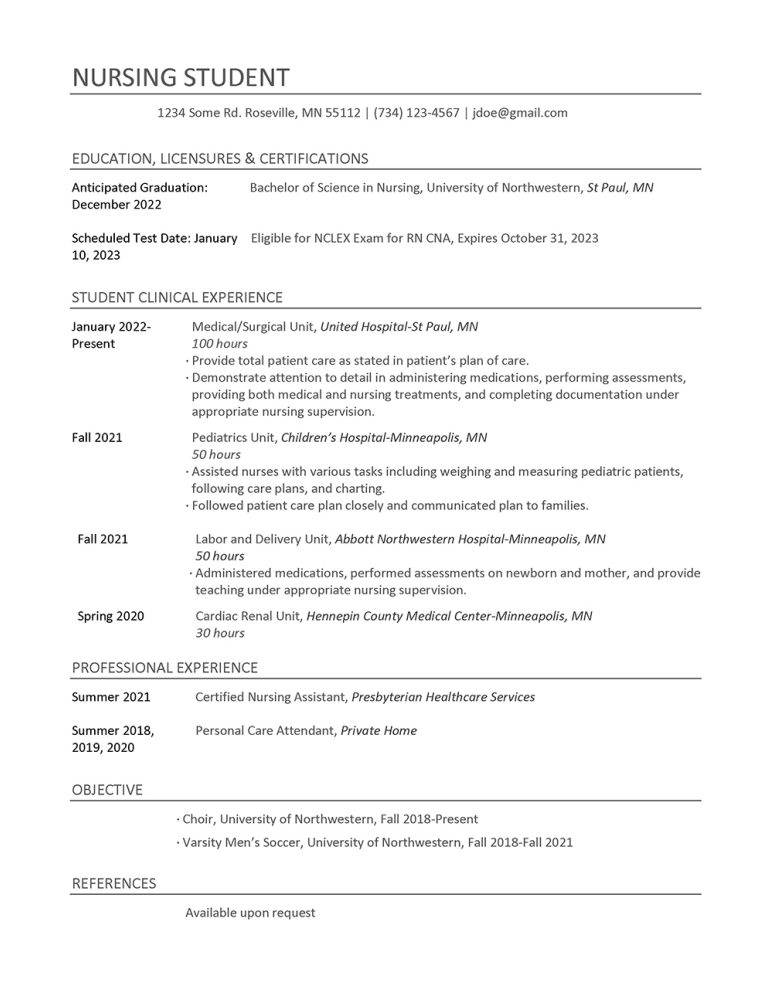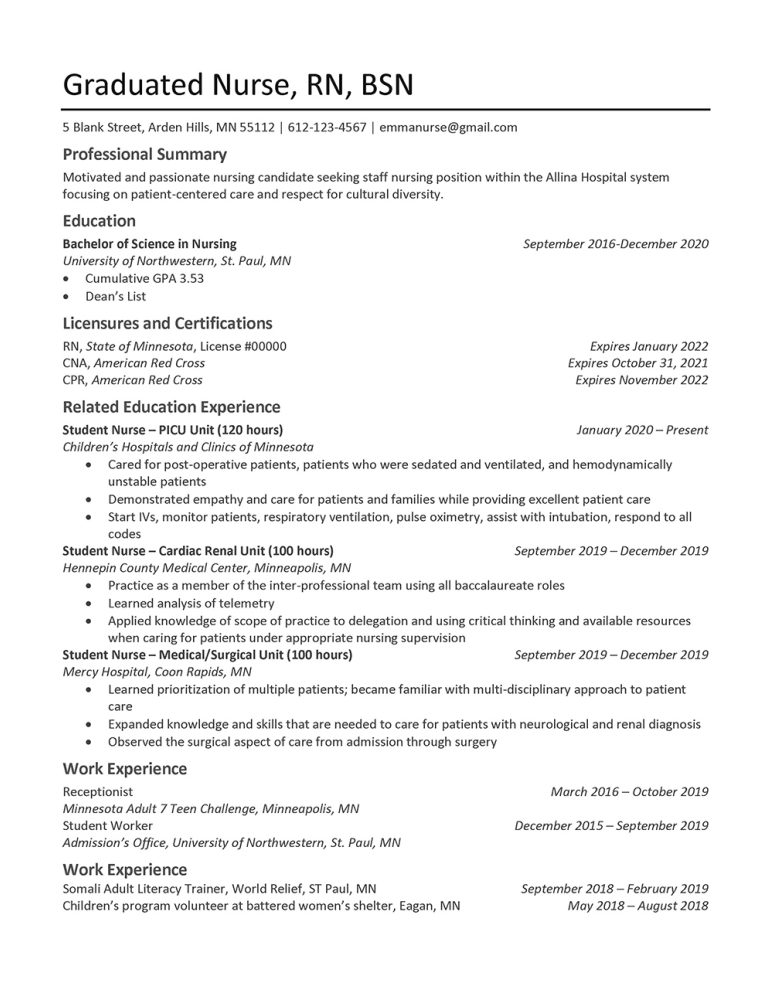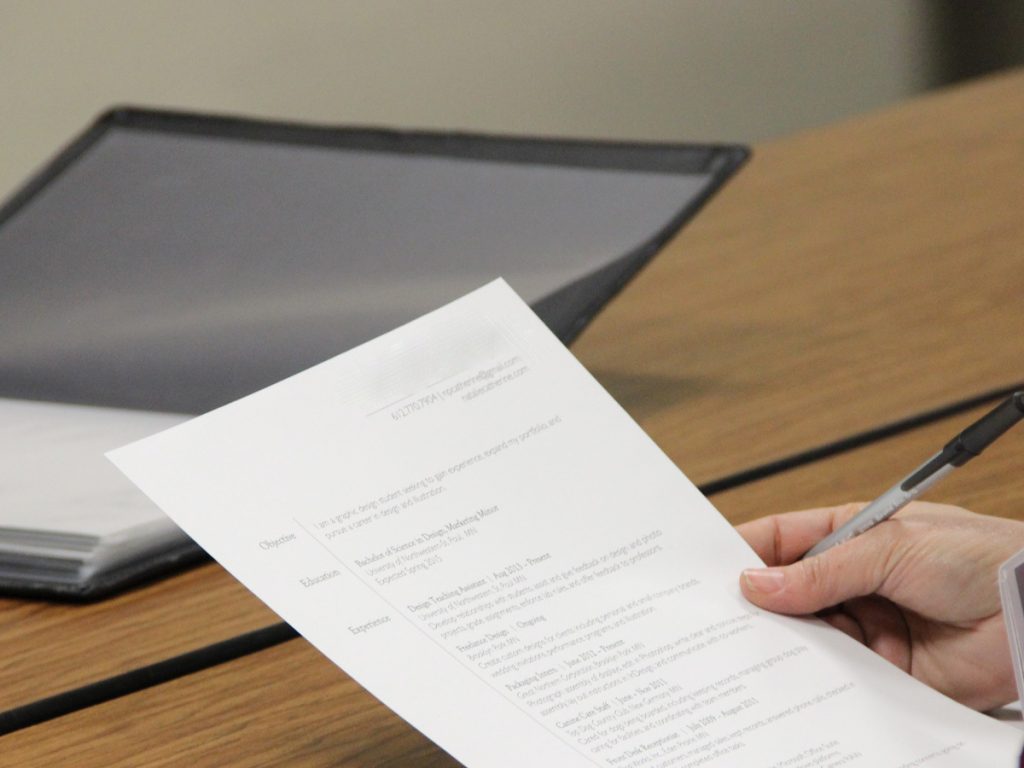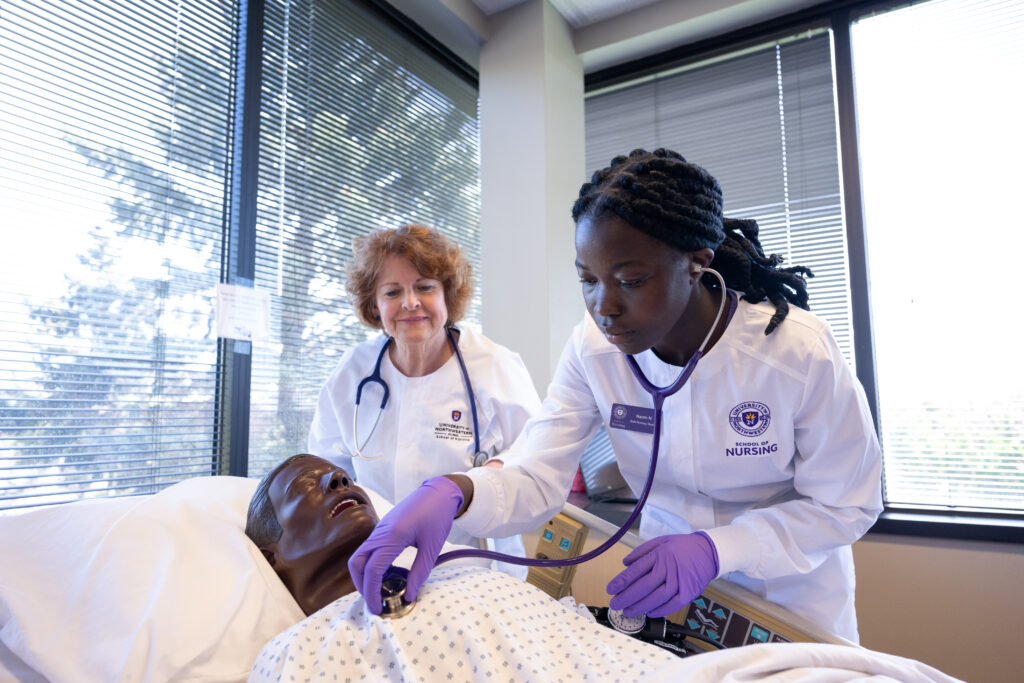A resume often serves as an organization’s first impression of you. It tells the recruiter or hiring manager objective information about you which can be used to decide if an interview is the appropriate next step. For this reason, your resume should professionally communicate the most important information about you so the reviewer can make an educated decision. No two resumes are the same, but there are some guiding principles that you can follow.
Step 1: Brainstorm
One of the best ways to craft a resume is by starting with a master list of your skills, knowledge, experiences, etc. The idea is that you will never throw this master list away, only add to it. From there you can pull items off your master list each time you need to make revisions to your resume.
Start with basic, objective things like:
- Knowledge (education/ licenses/ certifications)
- Skills
- Accomplishments/ awards
Then move on to your experiences:
- Student clinical rotations
- Work experience
- Volunteer experience
- Co-curricular activities
- Any other experiences you may want to include
Step 2: Skill Phrases
Now you need to provide detail for your experiences that are related to the position for which you are applying. Beneath each related experience, you should have multiple “skill phrases”. The more significant the experience, the more skill phrases. There are several different ways you can write a skill phrase, but we recommend skill phrases:
- Begin with an action verb.
- Explain what you did and how.
- The result/ skill used.
Step 3: Create your resume!
The layout of your resume is entirely up to you, but it should be:
- Clean
- Easy to understand
- Consistent (spacing, formatting, fonts, etc.)
- Professional
- One page (for recent college grads)
What should be included?
Below is a list of items that should always be on a resume and a list of items that are up to your discretion.
| Essential | Optional |
| Name and contact info: This should include first and last name, daytime phone number, email address and mailing address.Education: Include your GPA, any significant academic awards and graduation date (or anticipated graduation date).Licensure and certifications: If you have passed the NCLEX, include your RN license (and license number). If you have not yet taken/passed the NCLEX, write “Eligible for NCLEX test for RN” and include your test date (if known). Include any other related licenses or certifications.Clinical experience: This is the biggest area that nursing students leave out—but it is the most important! Always include the number of hours you spent in a clinical rotation.Any other related experience (E.g. CNA positions, PCA jobs, etc.) | Professional summary/objective: Most recruiters now prefer a professional summary over an objective, but it is up to you whether or not you include this section.Academic & co-curricular activitiesAwardsProfessional membershipsSkillsVolunteer experience: If you have related volunteer experience, include it! Unrelated volunteer experience is optional.Unrelated job experience: Depending on how much nursing-related experience you have, including unrelated job experience may be necessary to fill in employment gaps.References |
Select a resume format that will best highlight what you have to offer:
- A chronological resume focuses more on dates, positions and duties in reverse chronological order and is best suited for someone with much work experience that relates to one’s goals or objectives. This is the most common format for nursing resumes.
- A functional resume emphasizes transferable skills, qualifications and accomplishments and is good if you lack work experience or are trying to enter a new occupation.
- A combination resume combines the best elements of both formats. It is a good choice for recent graduates with some job experience.
Step 4: Tailoring the resume to the job
Many recent graduates make the mistake of sending their resume to as many employers as possible, without tailoring their resume before doing so. For example, if you are applying to a position at an assisted living home, your resume should highlight different skills and experiences than it would for a job in a NICU.
HINT: Use exact words (but not full sentences) from the job description! If you are being authentic about your abilities, you can use their language. Organizations often use a type of computer software, Applicant Tracking System (ATS), that will reject resumes that do not have enough keywords in common with the job description.
Sample Student Resume

Sample Graduate Resume






